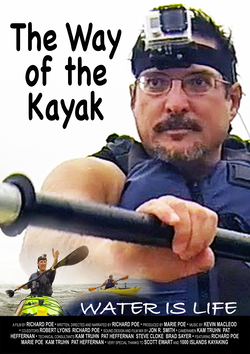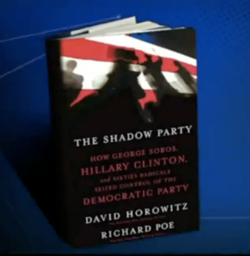Phony Watchdog Groups Spy on Oil Industry for George Soros
|
by Richard Poe Thursday, April 19, 2007 4:45 pm Eastern Time |
Archives Comments |
Global investor, Democrat donor and convicted insider trader George Soros recently invested more than $60 million in Halliburton, America’s largest oilfield development firm. The latest news from Iraq may explain why. Yesterday, the IHS, Inc. oil-and-gas consultancy announced that Iraq’s estimated oil reserves may be twice as large as previously known.(1) Soros bought those Halliburton shares at an extremely opportune time.
Did he just get lucky? Or did Soros have inside information?
This may be a case of the fox guarding the henhouse. It turns out that Soros has been funding a whole network of global “watchdog” organizations whose ostensible purpose is to monitor the petroleum industry for evidence of corruption.
Soros founded the network in June 2002, under the name, “Publish What You Pay” (PWYP). (2) The coalition touted itself as a group of do-good agencies seeking to force oil-producing nations and corporations to divulge details of their oil-and-gas revenues.
Prominent in the Publish-What-You-Pay coalition are such Soros-funded groups as Global Witness and Revenue Watch Institute.(3)
In order to implement its vision of global energy regulation, Soros’s Publish-What-You-Pay movement formed the Extractive Industries Transparency Initiative (EITI) in September 2002, under the auspices of the British government.(4)
In the London Financial Times of March 17, 2005, Soros wrote:
“Countries that are rich in natural resources are often poor because exploiting those resources takes precedence over good government. Competing oil and mining companies, backed by their governments, have often been willing to deal with anyone who could assure them of a concession. This has bred corrupt and repressive governments and armed conflict. In Africa, civil wars have devastated resource-rich countries such as Congo, Angola and Sudan. In the Middle East, democracy has failed to materialize. Lifting this resource curse could make a large contribution to alleviating poverty and misery in the world, and there is an international movement aimed at doing just that. The first step is transparency; the second is accountability.”(5)
Despite his talk of transparency, Mr. Soros used the pages of The Financial Times to promote his “Publish What You Pay” movement, without divulging that his own Open Society Institute had bankrolled the movement.
Given Mr. Soros’ lifelong involvement in petroleum industry investment, one cannot help wondering if the global network of energy “watchdog” groups he created serves some purpose other than the high-minded ones it espouses. Such a network would be extremely valuable for collecting business intelligence, for instance, or for bringing to bear international regulatory pressure against rival business interests or even governments.
“The US and Britain have not used their power in Iraq to promote transparency in the oil sector,” Soros complained in the same article. “Let us hope the new Iraqi government does better.”
Cross-posted from TheVanguard.org 04.19.07 04:45 pm ET
NOTES
1. Ed Crooks, “Iraq May Hold Twice as Much Oil“, FT.com (Financial Times online), 18 April 2007; Press Release: “IHS Launches First Detailed Report on Iraq’s Oil Reserves and Production Potential Since Start of Iraq Conflict“, IHS Inc. Media Desk, 18 April 2007
2. PublishWhatYouPay.org, “Background” (accessed 04.19.07)
3. GlobalWitness.org, “Our Funders” (accessed 04.19.07); RevenueWatchInstitute.org, “About Us” (accessed 04.19.07)
4. eitransparency.org, “About EITI” (accessed 04.19.07)
5. George Soros, “Transparency Can Alleviate Poverty“, Financial Times, 17 March 2005







